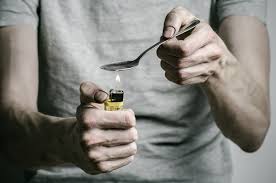

Antioxidant cancer prevention remedies will work only when you stop abusing other toxic substances
Antioxidant cancer prevention remedies: Free radicles
The good health we once boast of in our ancestral days is no longer their thanks to the environmental contamination. Diseases are coming each day and most worrying is the rate at which people are becoming resistant to some medications. State economies are in ruin for because of the allocation in disease management that takes the lion share as compared to the resource allocated for development. Cancer is one of the major life-threatening health conditions today that needs to be addressed. Because of this, we’re going to share with you some tips you can apply including the application of antioxidant cancer prevention remedies to remain healthy. And for a better understanding, experts at AWAREmed Health and Wellness Resource Center under the leadership of doctor Dalal Akoury gives share with us the following attributes and definitions of antioxidants.
Antioxidant cancer prevention remedies: Attributes and definitions of antioxidants
- Antioxidants are substances that may protect cells from the damage caused by unstable molecules known as free radicals causing damages which may lead to cancer.
- Antioxidants interact with and stabilize free radicals and may prevent some of the damage free radicals may have caused. Examples of antioxidants include beta-carotene, lycopene, vitamins C, E, and An etc.
- Antioxidants are chemicals that interact with and neutralize free radicals, thus preventing them from causing damage. Antioxidants are also known as “free radical scavengers.”
- Antioxidants are chemicals that block the activity of other chemicals known as free radicals. Free radicals are highly reactive and have the potential to cause damage to cells, including damages that may lead to cancer.
- Free radicals are formed naturally in the body. In addition, some environmental toxins may contain high levels of free radicals or stimulate the body’s cells to produce more free radicals.
- Some antioxidants are made naturally by the body. Others can only be obtained from external (exogenous) sources, including the diet and dietary supplements.
- Laboratory and animal research has shown that exogenous antioxidants can help prevent the free radical damage associated with the development of cancer.
- Research in humans has not demonstrated convincingly that taking antioxidant supplements can help reduce the risk of developing or dying from cancer, and some studies have even shown an increased risk of some cancers
Finally, if we want to be safe, we must deal firmly with free radicles. Scientifically, the body will make some of the antioxidants (endogenous) it uses to neutralize the free radicals. Alongside that, the body will also rely on external (exogenous) sources, like a good diet, to obtain the rest of the antioxidants it needs. These exogenous antioxidants are commonly called dietary antioxidants. Fruits, vegetables, and grains are rich sources of dietary antioxidants. Some dietary antioxidants are also available as dietary supplements. Examples of dietary antioxidants include beta-carotene, lycopene, and vitamins A, C, and E (alpha-tocopherol). The mineral element selenium is often thought to be a dietary antioxidant, but the antioxidant effects of selenium are most likely due to the antioxidant activity of proteins that have this element as an essential component (i.e., selenium-containing proteins), and not to selenium itself. When applying antioxidant, it is necessary that you keep a close link with your doctor to ensure that mistakes are identified and corrected in good time. You can also schedule an appointment with doctor Akoury for further professional undertakings.
Antioxidant cancer prevention remedies: Free radicles
http://regenerativepotential.com/wp-admin

0 comments
Write a comment